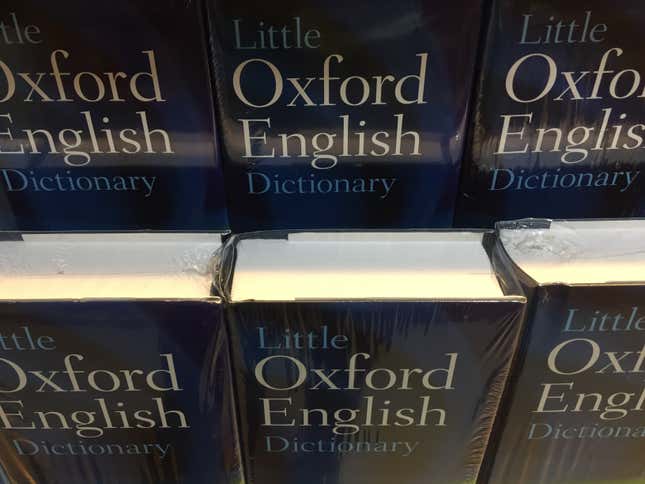
If you’ve ever seriously considered Black American English to be its own language, you aren’t the only one. And while words like “finna” or “bae” might get you thrown off of the scrabble board now, it may not remain the case in three years time, as an Oxford Dictionary for African American English hits book shelves and digital devices. According to The New York Times, Henry Louis Gates, Jr. will serve as the editor in chief of this very real, and very important project.
“Just the way Louis Armstrong took the trumpet and turned it inside out from the way people played European classical music,” told The Times, Black people took English and “reinvented it, to make it reflect their sensibilities and to make it mirror their cultural selves.”
Gates was brought on board at the inception of the collaborative project birthed by the Harvard University’s Hutchins Center for African and African American Research and Oxford University Press. Initially, Gates was asked to oversee Black American language representation in existing dictionaries. This was the plan until Gates suggested a more elaborate scheme.
In addition to the standard definitions and spellings you would find in any dictionary, this special edition will also include a historical record of the original contributor or contributors of the word or phrase. Per Danica Salizar, the executive editor for World Englishes for Oxford Languages, you can expect to find words with double meanings like “kitchen.” Depending on the phrasing, the word does not only represent the place in the home where folks gather to eat, but the hair that lives on the nape of the neck known to grow just a little kinkier than the rest.
Readers are also sure to find phrases such as “side hustle,” which was once predominantly used by Black people to describe a second or temporary source of income, and can now be heard anywhere from CNN to Forbes magazine to classify entrepreneurial endeavors.
In order to properly cite included words, researchers are sourcing materials such as books, magazines, interviews, archival newspapers, and even everyday community people. Throughout the project’s timeline, there have been calls on the Oxford website and social media accounts for Black people to submit their own contributions.
“Maybe there’s a diary in your grandmother’s attic that has evidence of this word,” Salazar said.
Both Salazar and Gates have spoken to the fact that the evolution of Black language roots back to first, our displacement in this country, and our separation thereafter.
“You wouldn’t normally think of a dictionary as a way of telling the story of the evolution of the African American people, but it is,” Gates said. “If you sat down and read the dictionary, you’d get a history of the African American people from A to Z.”
Gates also makes note of one other significant call out.
“The bottom line of the African American people, when you read this dictionary,” Gates said, “is that you’ll say these are people who love language.”